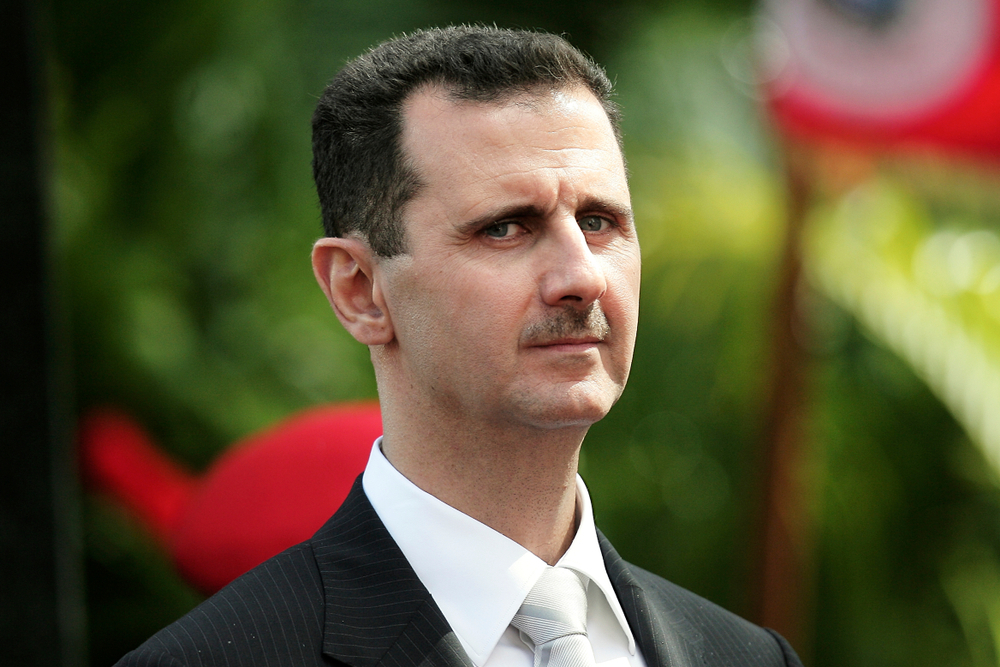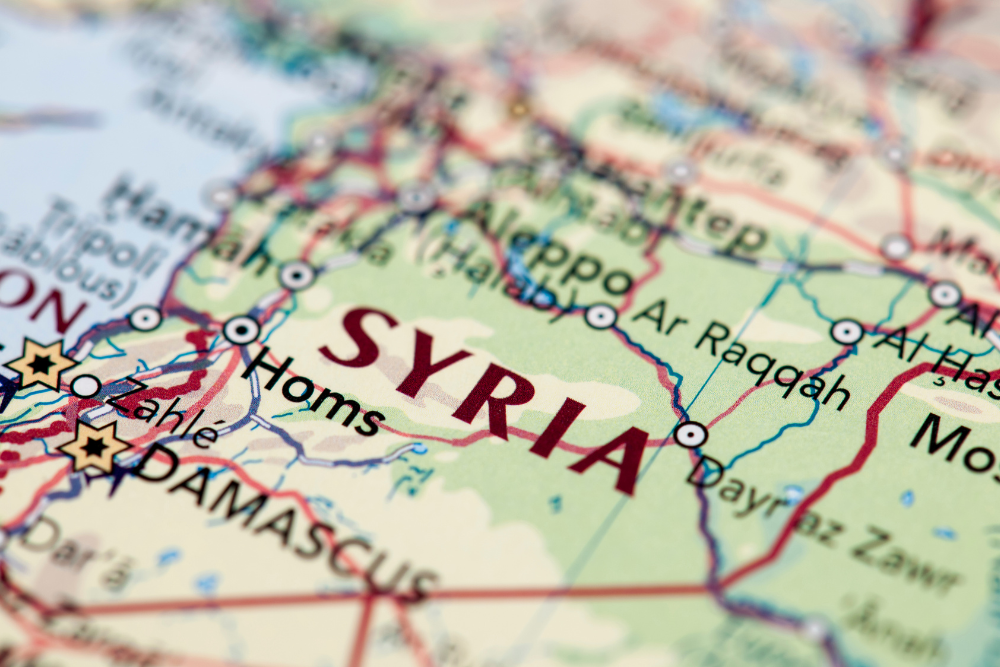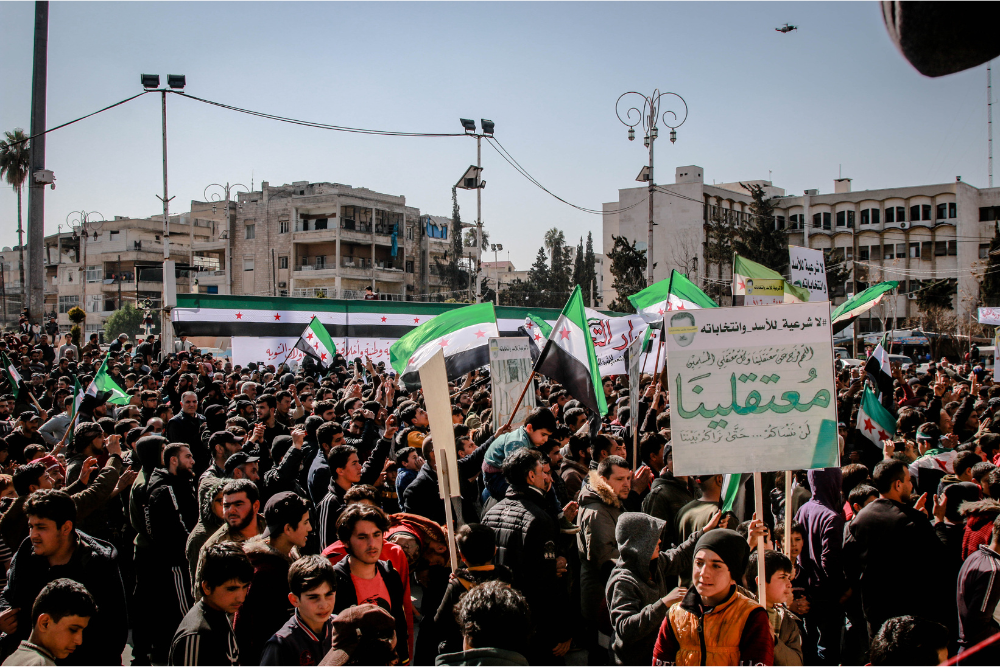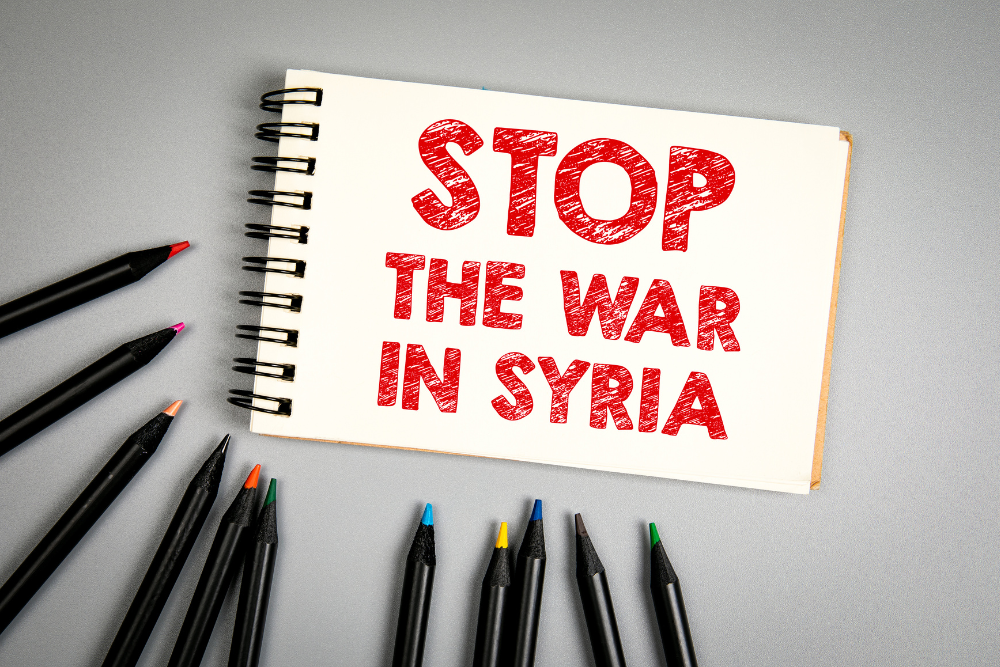PROLOGUE
It has been well over two years since the Syrian opposition, propelled by long-held and varying grievances, rose against Bashar al Assad.

With Assad’s long autocratic reign under serious threat, the regime responded with force, arresting protesters and killing many others. In the face of brutality and impelled by their international sponsors, the protests soon turned into an armed insurgency.Given Syria’s location and geopolitical stakes in the region, the only way the rebels could have secured a favourable outcome was to be able to topple Assad on their own, either through peaceful means or through an armed insurgency. However, that was not to be and Syria today is stuck in an accelerating helix of proxy warfare. Syria has become the frontline of the Shia-Sunni conflict reignited by Iraq, with à la carte intervention by international and local powers such as the US, Israel, Saudi Arabia, and Iran. The fact is that every considerable world and regional power –Turkey, the Gulf Arabs, Iran, Israel, the US, Russia, the West and others- is now involved in Syria. This has sent the stakes spiralling and now any outcome will entail a huge price. Any possibility of a clear victory for the rebellion appears remote in view of the infighting and deep divisions within its ranks. While Assad’s regime has turned out to be more tenacious than was estimated, with all the powerful nations arrayed against it, a clear-cut victory for the regime is also out of question. Facing an existential threat for their community, Assad’s forces are killing on whatever scale it takes to survive. However, Mr Assad’s vaunted “security solution” is not working. He cannot regain control of the country. Meanwhile the loss of life has now surpassed 100,000 in this small country.
WEST’S ROLE IN SYRIA

We all know that Assad is a despot who has subjugated all dissent and has killed his opponents, much like his father. That is an established fact for most sane minds. The question here is, is the West any better than Assad where its interests matter? When it comes to the emerging world the US led western countries often act as a bunch of hypocritical bully boys and Syria is not allowed to be an exception. Qatar has been very forthcoming about their arms shipments to Syria, through the ‘coordination’ of the CIA. The US using the trite “line has been crossed” mantra and then wanting to further arm the Al Qaeda led opposition again exposes Obama’s hypocrisy. Syria is what happens when you refuse to get on board with Israel in the Middle East. That’s why Assad is not being given a second chance when, like all faltering dictators, he is willing to make all democratic concessions including elections under the international watch, universal eligibility to run in elections, stripping Baath party of special privileges etc. Isn’t it what the West wanted? If yes, then why does the massacre continue? That is because Assad refuses to be another neoliberal puppet. The West is not interested in Syria continuing as a secular state. The PR for the term ‘rebels’ has been exquisitely choreographed for the fighters who would have been termed as terrorists, jihadists, or insurgents anywhere else. In this instance the murder of truth was a precursor to war and not the clichéd casualty of war.
Well if you feel the subcontinent’s politicians monopolize stupidity, David Cameron says they have a duty to protect the Christians in Syria. Can someone tell him that back at the ranch the Christians are all staunchly behind Assad? It is not about how little he knows. It is how he is lying to his fellow countrymen. A respected former French Foreign Minister recently explained in a televised interview that Syria’s war was planned two years before the Arab Spring. {http://www.globalresearch.ca/former-french-foreign-minister-the-war-against-syria-was-planned-two-years-before-the-arab-spring/5339112}. No wonder, the Western governments have laboured mightily to get what they wanted – a peg, however flimsy, on which to hang arming the Syrian opposition. They know that this is no struggle for democracy or human rights. Not any longer in any case. This war is complex: it directly cuts through an ancient and highly emotive and sectarian regional fault lines. However both Cameron and Obama don’t seem to care if west’s contradictions are becoming increasingly apparent as long as the bloodshed across the region increases.
THE REALITY

Those who witnessed the arming of the Mujahideen in Afghanistan in their battle against the Soviet forces will tell you that then a single cargo a month was thought significant for the Mujahideen to fight with the Soviet military might in a country three and half times the size of Syria. To add perspective, at times, the Syrian opposition has been receiving fifteen a month. Syria is already inundated with weapons. But, as the world has witnessed in Afghanistan no quantity of arms supply ever suffices. And in the moments when the opposition begins to lose it is always blamed on the west as its failure to equip the rebels with more and better weapons. We all saw in Afghanistan how a simple rebellion was transformed when the donors started pumping in huge sums and the struggle turned into big business.
The truth is that Assad’s regime was never as vulnerable or unpopular as it was depicted to be by the West and the Gulf Arabs. The proof being that after two years of a savage war and international isolation he holds almost all the major towns and cities of the country and the nucleus of his regime has held together. His forces have also made some gains on the battlefield in the past two months. The rebels are so divided and dysfunctional that they are not capable of ensuring a collective victory. In fact the rebels’ hopes reside in a Libya-style solution in overthrowing Assad, as was Gaddafi by NATO in 2011, and then rebels taking over in the world view.
IS A SOLUTION POSSIBLE?

So amidst all the cynicism and savagery, is there an end in sight to the civil war? I think the only credible hope lies in the multi-party parleys that the US and Russia once talked about sponsoring. This holds the only realistic chance of the warring parties to step back from the violence. For the regime it makes sense as it is in a stronger bargaining position after the recent gains in the battlefield, whereas the opposition can be pressurised by their backers to participate. However, for these to happen in a meaningful way, the US will need to reconcile itself with the reality by abandoning its insistence on the regime change and allowing Iran to participate in the talks. The US assertion on regime change has been a hurdle for Russia and China, especially in view of the experience following the overthrow of Qaddafi in Libya. And Iran wields the greatest influence on Assad’s regime. For the talks to go anywhere, the rebels and their foreign backers will have to abandon hopes for a definitive victory and look for a modus vivendi with the Assad regime. This could comprise an agreement to the changes in the structure of the regime, security for the Alawite community, the exclusion of more extremist forces from a role in the future government, a greater role for the majority Sunni community in the set-up, and genuinely fair and free elections. Any diplomacy with a pre-condition who holds power is set to flounder because both sides believe they can win this war.
WHAT IF NO SOLUTION IS FOUND?
In the event the above talks fail then Syria seems likely to descend into a deadlock with various groups holding on their fiefdoms in various parts of the country while civilian suffering continues to rise. Western and Gulf Arab governments would not really mind such a stalemate as it would undercut Iran’s and Russia’s strategic positions. This can involve a ceasefire with sporadic hostilities, where each holds the territory it currently controls.
However, in the longer run this will likely see the conflict spilling over beyond Syria. Syrian crisis has placed Lebanon in the most precarious position in its history since the end of its civil war. Hezbollah’s entry into the war has strengthened the divisions in a highly polarized country. Recently there have been clashes between Alawites and Sunnis in the city of Tripoli. The Sunnis up in arms in Iraq are looking for alliances with the rebel forces in Syria. As the Kurds in Syria carve out a niche for themselves, tensions in Kurdish areas in Turkey continue to rise, whereas Syrian Kurds look to the Kurds in Iraq for succour. Syrian civil war also has major implications for Jordan which can feel a palpable disquiet in its overwhelmingly Sunni population as Syrian refugees in Jordan now amount to about 20% of that tiny country’s population. Any further gains by the extremists in Syria will also embolden their counterparts across the border in Jordan.
Quite an imbroglio! Isn’t it? However a more Machiavellian analysis of the stakes and options in Syria’s war throws up an intriguing picture how quid pro quos on offer make Syria’s war a murky issue to resolve.
WHAT ARE THE VARIOUS PARTIES LOOKING FOR IN SYRIA?
While Assad and his allies –propped by Iran- are fighting for their survival, by now it is evident that the Western states will not accept an end to the war till their allies can secure a victory. Meanwhile, civil war is not a bad option for the West and Israel because it knocks out Syria as an opponent to Israel and keeps Iran under immense pressure. Hezbollah is preoccupied by Syria and not with Israel. The differences among the Muslims in the region have both deepened and sharpened thus further diminishing any possibility of mounting a challenge to Israel anytime in foreseeable future. Turkey is sucked into the Syrian crisis instead of broadening its influence in the region and other Turkic countries. And the Gulf Arabs continue to do the West’s bidding. This explains why the US, which is extensively involved both directly and through Qatar and Turkey, continues to lay down unrealistic preconditions for a negotiated settlement of the issue. The White House’s continued insistence on imposing a regime change sounds more and more like an alibi for a very long conflict. Moreover, Washington appears to have shut the door on the idea of Iran, a main player, attending Geneva talks. This again is unrealistic if the aim of negotiations is to end the fighting. So, in reality the US is enabling a massacre that it could do considerably more to end, simply because the war is becoming a quagmire for America’s enemies, Iran and Hezbollah, and is costing Russia support throughout the rest of the Arab world because of its standing by Assad’s regime. Gulf monarchies, which in peacetime tend to be troublesome American allies, have invested small fortunes on the rebel side, sending weapons and establishing exile political organizations. The more the Syrian war sucks up the attention and resources of its entire neighbourhood, the greater America’s relative influence in the Middle East. This is also the reason why Britain and France are so keen to send further weapons to the rebels. Thus Britain and France are both playing mischief to ensure that the savagery in Syria continues, as they both well know that ending the EU embargo on arms for the rebels will kill the prospects of any talks by raising the rebels’ hopes for the eventual full-blown Western military intervention a la Libya.
Though hostilities between Syria and Israel can also not be ruled out, Syria is not in a position to pose any danger to Israel. In fact, for Israel the thought of Hezbollah and Iran being sucked into a civil war with the Sunnis infused with terrorist backing is not a bad prospect – i.e., those two sects killing each other instead of uniting against Israel. The only resolution of the war that could be of interest to Israel is the emergence of a regime in Syria that is willing to cede the Golan Heights to Israel and sue for peace with it. That is not on the cards for now as the struggle is now led by Jihadists and Israel has every reason to be worried about the opposition as much as about Assad. Hence, Israel too seems content to watch the killing continue and one doesn’t see the Arabs or Muslims getting together to stop it.
Qatar and Saudi Arabia lead the Arab involvement in Syria. That western leaders and strategists see no paradox in totalitarian monarchies like those of Qatar and Saudi Arabia rooting for democracy elsewhere is another matter. In its endeavours to unite the Syrian opposition under its brainchild Syrian National Coalition and by putting the disjointed rebel brigades under one central command, Qatar has ended up deepening the divisions among the opposition and further fragmenting a hapless country. Qataris have also worked closely with the exiled Muslim Brotherhood to pick rebel factions to support, with Ahfad al-Rasoul and Farouq brigades currently being the biggest beneficiaries of Qatari largesse. Qatar’s close ally Saudi Arabia though does not eye its links with the Brotherhood favourably. Instead Saudi Arabia prefers backing salafist groups that follow the same brand of Islam as the Kingdom. This rivalry has also led to Saudis and Qataris creating separate alliances with the rebel groups, thus further complicating the situation. In effect, despite still being the biggest donor to the rebellion, Qatar’s influence on arms supplies to the rebels is now on the wane as Saudi Arabia has become clearly the largest supplier of arms to the rebellion. Saudi Arabia has more effective networks to procure arms and it works in close collaboration with Jordan to exploit supply routes through Northern Syria.
Putin, meanwhile, is demonstrating some sense in Syria, maybe the West should take note, and China should consider changing their foreign policy and get more involved to stand up to the West’s hypocrisy. Putin refused to fall for Obama’s blatantly uncorroborated claims of chemical weapons use by the regime, ignoring chemical weapons use by rebels, ignoring outrages by the rebels including cannibalism on video and execution of children out of religious extremism, and a new surge of military support to one side just as talks are proposed. One example is that at G8 Obama talked of reducing the violence and Putin insisted on stopping the violence. This is all the difference. Are we going to look back in near future and admire the fact that –while we struggled to sort out the mess in Iraq, Afghanistan, and Libya- the US has managed to pull the world into yet another nauseating morass?
CONCLUSION
Unfortunately for Syrians, in the real world we live in, humanitarian concerns never trump nations’ blatant state and geopolitical interests. The American historian and polemicist Daniel Pipes is just being brutally candid when he writes: “Western powers should guide the conflict to stalemate by helping whichever side is losing. The danger of evil forces lessens when they make war on each other.” As long as the war continues to suit Israel and the West, no efforts for peace will gather enough motivation to end it. For anyone seeking to understand it in the historical context, “The Great Game” -a book with the tale of how superpowers coldly schemed for centuries over Central Asia in utter disregard to the consequences for the region’s citizens- tops my list of recommended reading. Similarly, in order to gain control over energy resources, every major world power (regardless of any changing of the guard) is ready to support policies and upheavals invoking misfortune for the populations in the Middle East. Euphrates’ waters have turned to blood yet again. Meanwhile, Syria continues to unravel. A beautiful country in the cradle of history is being laid waste by a pitiless government, the mindless bigoted regimes in some of its neighbouring countries, and the West’s self-serving hypocrisy.







